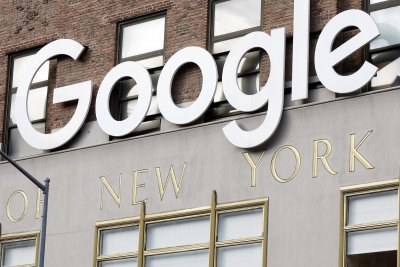Google parent company Alphabet tops $4 trillion value

Jan. 12 (UPI) — Alphabet, Google‘s parent company, became the fourth company to reach a $4 trillion value Monday.
The company’s stock rose 2% Monday after Apple announced it chose Google’s Gemini to power its artificial intelligence features.
Nvidia and Microsoft breached the $4 trillion mark in July, and Apple crossed it in October. Alphabet passed $3 trillion in September. Since then, Apple and Microsoft have dropped below $4 trillion.
Analyst Deepak Mathivanan upgraded Alphabet’s stock on Jan. 8, CNBC reported.
“We believe the technological advantages of the Gemini assistant app — powered by Google’s ‘grounding’ assets — vs. ChatGPT (powered by Bing and partner integrations) are underappreciated,” Mathivanan wrote. Google “arguably, has the strongest footprint across several layers in the AI tech stack, and the company’s decade-long investments have enabled deep competitive moats.”
In November, Google released Ironwood, the seventh generation of its tensor processing units, a custom AI chip that rivals Nvidia. In December, Google introduced Gemini 3.
Apple and Google announced their Gemini partnership Monday in a joint statement.
“Apple and Google have entered into a multi-year collaboration under which the next generation of Apple Foundation Models will be based on Google’s Gemini models and cloud technology. These models will help power future Apple Intelligence features, including a more personalized Siri coming this year,” the companies said.
“After careful evaluation, Apple determined that Google’s Al technology provides the most capable foundation for Apple Foundation Models and is excited about the innovative new experiences it will unlock for Apple users. Apple Intelligence will continue to run on Apple devices and Private Cloud Compute, while maintaining Apple’s industry-leading privacy standards,” the statement said.
Citi analysts said 70% of Google Cloud customers use its AI products.
“Google has the chip, the infrastructure capacity, and the model amid growing demand,” CNBC reported Citi said.
